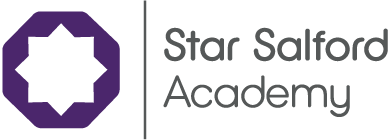Computing
Why study Computing?
Computing and computer technology are part of just about everything that touches our lives from the cars we drive and the movies we watch, to the ways businesses and governments deal with us. Understanding different dimensions of computing is part of the necessary skill set for an educated person in the 21st century.
How will I study Computing?
Pupils study Computing through substantive and procedural knowledge. The curriculum teaches pupils to use creativity and computational thinking skills solve real-world problems. Pupils will learn the principles of abstraction, decomposition, pattern recognition and algorithm design. They will study how digital systems work and how to create programs and systems of their own using high-level programming languages. As a result, our pupils will become responsible, competent, confident, and creative users of information and communication technology, with the skills to solve problems, design systems and understand machine learning and ‘machine intelligence’. They will learn how to apply the academic principles they learn in the classroom to real-world systems in an exciting and engaging way.
What will I study at Key Stage 3?
Students in KS3 will explore computer systems and digital devices, including both physical and digital components. They will master problem solving through using computational thinking and create algorithms to solve problems. The curriculum introduces students to text-based programming with Python. The lessons form a journey that starts with simple programs involving input and output, and gradually moves on through arithmetic operations, selection, iteration and string manipulation. Students develop essential knowledge on binary representations and how computers facilitate and enhance human interaction. Pupils are introduced to binary digits and how they can be used to represent text, images and sound.
Throughout KS3 pupils develop essential digital literacy skills. Pupils will develop the skills to analyse and produce digital artefacts and master spreadsheet skills including the use of formulas and functions. Pupils explore the technologies that make up the internet and the World Wide Web. By analysing case studies and studying the mechanisms of cybercrimes, including social engineering, students learn how to protect themselves online and mitigate the risk to networks posed by cybercriminals.
What will I study at Key Stage 4?
There are two options for study at Key Stage 4:
During the GCSE Computer Science course, pupils will develop an understanding of Computer Science methods in the real world, providing you with a real study of computation and reflection on today’s global world.
Pupils will study principles of computer science and application of computational thinking. Following on from more visual programming environments, programming skills will be developed further using high-level textual programming languages.
During the Cambridge National Creative iMedia course, pupils’ develop their understanding of IT skills through the development of creative products to solve real-world data problems. Taking this qualification will prepare pupils for a career in a data driven future. Learners will understand and develop tools, techniques, methods and processes for technological solutions; knowledge and use of hardware and software applications; Data Manipulation tools and techniques; and project life cycles – phases, interaction, inputs and outputs; and risks, legal moral, ethical and security issues.
Assessment at Key Stage 4
GCSE OCR Computer Science J277
| Overview | Focus |
|---|---|
|
J277/01: Computer systems Written paper: 1 hour and 30 minutes |
Systems architecture, memory and storage, computer networks, connections and protocols, network security, systems software and ethical, legal, cultural and environmental impacts of digital technology The question paper will consist of short and medium answer questions. There will also be one 8-mark extended response question |
| Overview | Focus |
|---|---|
|
J277/02: Computational thinking, algorithms and programming Written paper: 1 hour and 30 minutes |
Section A is worth 50 marks, and assesses pupils’ knowledge and understanding of the concepts of Computer Science. Pupils then apply these to problems in computational terms, where they may use an algorithmic approach. Section B is worth 30 marks, and assesses pupils’ Practical Programming skills and their ability to design, write, test and refine programs. |
OCR Cambridge National Level 2 Creative iMedia
| Overview | Focus |
|---|---|
|
Unit R081: Pre-production skills
|
This question paper:
|
| Overview | Focus |
|---|---|
|
Unit R082: Creating digital graphics
|
The centre-assessed tasks:
|
*An additional 2 units of study will be taken, each work 60 marks (60UMS). These units of study will be chosen from:
- Creating 2D and 3D digital characters
- Storytelling with comic strip
- Creating a multipage website
- Creating a digital animation
- Creating Interactive multimedia products
- Creating a digital sound sequence
- Creating a digital video sequence
- Digital photography
- Designing a game concept
- Developing digital games
Enrichment
The faculty offers subject-specific enrichment clubs and pupils are able to use the school’s state-of-the-art IT facilities at both lunchtime and after school. Pupils can representing the school in local and national competitions designed to increase their engagement and enhance their subject knowledge, such as the Bebras Computing Challenge and the BAFTA Young Game Designers competition. The faculty will also support learners to complete The Inspiring Digital Enterprise Award, known as iDEA; an international award-winning programme that helps them develop digital, enterprise and employability skills. Intervention sessions are provided to consolidate prior learning and ensure maximum progress is at the heart of our delivery model. Clubs include a digital game design and coding club.
Careers
The study of Computing and Digital Media can lead to future careers ranging from Games Programmer, Digital Content Producer and Software Engineer to Data Analyst, Formula 1 Engineer and Software Developer. Famous Computing graduates include Mark Zuckerberg (founder of Facebook), James Gosling (creator of Java), Anita Borg (founding director of the Institute for Women and Technology (IWT) and the Grace Hopper Celebration of Women in Computing).
